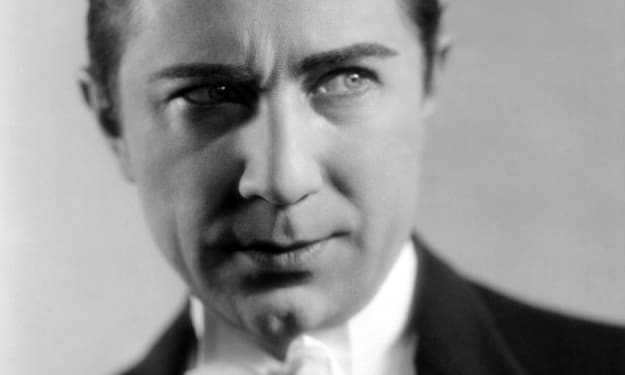The True Origin of The Religious Right
Racism, Bigotry, and Segregation

Up until the 1960s when you thought of Christian activists and protesters, certain images came to mind. Volunteers in soup kitchens trying to help the homeless, marchers asking for civil rights and women's suffrage, and if you went back even further, those who demanded humane treatment for society's outcasts, according to NPR. Before that, Christian activists were the men and women who deeply desired an end to slavery. After the 1970s, though, that tune changed. In the post-Vietnam era, Christian activists started staging more aggressive protests. They traded in turning the other cheek for fire and brimstone, and with every generation the rhetoric grew more intractable, fearful, and hate-filled. This was the rise of the Christian Right, which has driven policies like opposition to civil rights for LGBTQ+ people, the restriction of abortion, and other attempts to combine their faith with the law of the land.
The Religious Right's track record includes a number of less-than-stellar examples of Christian values. They enacted The Satanic Panic of the 1980s, for example, which was a witch hunt the US is still recovering from. The movement has challenged evolution being taught in the classroom, and has often attempted to replace it with theories that are more in-line with the idea of a creator god. When taken as a whole, you have to ask how the progressive Christian activists, who were concerned primarily for the poor, the downtrodden, and the mistreated, made a complete 180-degree turn in terms of their agenda?
The short answer is because the Religious Right did not, in fact, grow out of Christian values.
The Popular Myth
Author Randall Balmer places the origin of the modern Religious Right movement in the 1970s. The popular story is that evangelicals were shocked out of their apolitcal stupors by the court decision rendered in Roe v. Wade. Making abortion safe, legal, and protected was such a threat to the sanctity of life that moral Christians (who would never have gotten involved in the political process, otherwise) started campaigning against this landmark legal decision.
This story is still popular today. It is, however, in direct conflict with statements made by churches and evangelicals when Roe v. Wade was made the law of the land. Indeed, even places like Missouri boasted churches that were pleased with the court's ruling. They felt that it could save the lives of mothers, and stop further suffering on the part of victims of rape and incest. There was some grumbling, but American Christians, as a whole, did no more than disagree, then shrug their shoulders about the issue. The general feeling seemed to be that if you felt an abortion was wrong, then you shouldn't get one. Generating more feeling than that didn't go over very well, politically speaking.
So where did all of the fire and fervor of the Religious Right really begin? There had been brush fire arguments over science textbooks in some states, heated discussions about sex education in others, but according to Salon it technically began with the Civil Rights Act of 1964. More specifically, with the order that desegregation in schools was now government-mandated. Initially, this led to many white parents sending their children to private schools, many of which were religious in nature, as a way of getting around the desegregation laws.
It was another court case that set the match to the gunpowder keg, though; Green v. Connally. Never heard of it? That's all right. The case stated that, as far as the government was concerned, any institution that practiced segregation was not a charitable institution, and therefore would not qualify for tax exempt status.
This meant many Christian schools that depended on tax exempt status now had to make a choice. They could either agree to dispense with segregation and discrimination, and continue to not pay taxes, or lose their status, and pay the government what they would otherwise owe as a for-profit organization. One of the more notable institutions to suffer this decision was Bob Jones University, which was going to have its tax exempt status taken away, because the school had rules in place that prevented interracial dating.
The Truth

It should be noted that the Civil Rights Act of 1964 changed the face of the democratic party. Before that piece of legislation, the party had a huge number of supporters throughout the American South. After that legislation, and the subsequent desegregation laws that followed, opponents to minorities getting civil rights switched parties, and voted for republican candidates. So it wasn't that this opposition to civil rights rose out of nowhere; it's that when the donkeys voted for equal rights, the opposition started waving elephant banners.
Among the evangelical community, though, the case of Bob Jones University struck a chord. Paul Weyrich, a long time conservative activist, saw the discontent with the federal government's rules for non-profit schools as a way to mobilize evangelical Christians as political foot soldiers. Once a base had been built over what was seen as (or made to look like via speeches, coverage, and political spin) attacks against Christian universities, the ground work was laid. The early founders of the Religious Right held meetings, and added other issues to the agenda, as they collected more outrage, and a bigger following. Abortion, in a very ironic note, wasn't added till more than a decade after Roe v. Wade, and even then it was added with reluctance.
Thus we see the real origins of a political movement. It wasn't the sanctity of life, prayer in school, marriage equality, or even abortion that gave birth to the Religious Right. Rather, it was taxes, money, and the discontent of a large group of people about desegregation that allowed all of these, and many other issues, to be brought to the forefront of political agendas.
Would You Like More?
If you're interested in more content about history, language, travel, and especially about gaming, then feel free to check out my full Vocal archive!
About the Creator
Neal Litherland
Neal Litherland is an author, freelance blogger, and RPG designer. A regular on the Chicago convention circuit, he works in a variety of genres.
Blog: Improved Initiative and The Literary Mercenary






Comments
There are no comments for this story
Be the first to respond and start the conversation.